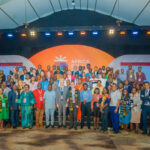The employment outlook in Sub-Saharan Africa is far more optimistic than in most other regions. The World Economic Forum’s Future of Jobs Report 2025 highlights encouraging trends, with 64% of companies surveyed in the region expecting greater talent availability over the next five years, compared to just 29% globally. This positions Africa as a potential skills hub, though its vast human capital remains largely underutilized.
Yet a persistent mismatch between education and labor market needs remains a critical obstacle.
In Côte d’Ivoire, recent research underscores the scale of the problem. A 2025 study in the Revue française d’économie by Kouadio Clément Kouakou and Andoh Régis Vianney Yapo found that 75.87% of young graduates work in positions that do not match their qualifications. The study identified both overeducation (61.38%) and underskilling (59.19%), especially among graduates with BTS, Bachelor’s, and Master’s degrees. This disconnect is often linked to an education system criticized for being overly theoretical and detached from market needs.
The government has begun addressing the issue through reforms, including a 2024 framework partnership agreement with the Ivorian Network of Human Resources Managers (RIGRH). The National Agency for Vocational Training (AGEFOP) has also spent more than three decades working to align training programs with employment demand.
In Senegal, young people aged 18 to 35 are more educated than older generations, but unemployment remains high. According to Afrobarometer, education levels have improved, yet the National Agency for Statistics and Demography (ANSD) reported a labor force participation rate of just 48.2% in Q2 2025 for this age group, compared with 69.0% for adults. Barriers to employment include inadequate training, reluctance to accept certain jobs, and a mismatch between academic learning and market needs. About 40% of young Senegalese are not in education, employment, or training (NEET).
Training for Tomorrow’s Needs
The skills challenge across Sub-Saharan Africa is immense. According to UNESCO (2024), only 9% of young people are enrolled in technical or vocational programs. This limited orientation toward practical, future-proof careers threatens to prevent the continent from harnessing its demographic dividend. Without large-scale upskilling, the youth surge could translate into mass underemployment, frustration, and instability.
Nevertheless, local initiatives are expanding. Digital startups, online learning platforms, and vocational training centers are offering new pathways. Some companies are now training their future employees directly, while others are partnering with schools and universities to align curricula with industry needs. Scaling up such approaches could ease job placement and meet demand in fast-growing sectors such as technology, healthcare, and green engineering.
On a global scale, Africa’s youth is attracting increasing attention. Europe and Asia’s aging workforces, combined with a shortage of digital talent worldwide, create a strategic opportunity for Africa—if it can rapidly modernize its education and training systems.
Turning Demography into Economic Power
Sub-Saharan Africa has a once-in-a-generation opportunity to become a major force in the global labor market. Realizing this potential requires massive investment in human capital. The Future of Jobs Report 2025 stresses the need for closer collaboration among governments, businesses, and civil society to accelerate training, guidance, and reskilling.
The stakes go beyond economic growth: they involve social inclusion, political stability, and technological sovereignty. Building a generation of well-trained, integrated, and supported African talent will lay the groundwork for the continent’s sustainable transformation. Decisions taken now will resonate for decades.
Investing in youth means investing in the future. Training young Africans for tomorrow’s jobs prepares them to play a central role in the evolving global economy.
Cc: Félicien Houindo Lokossou



